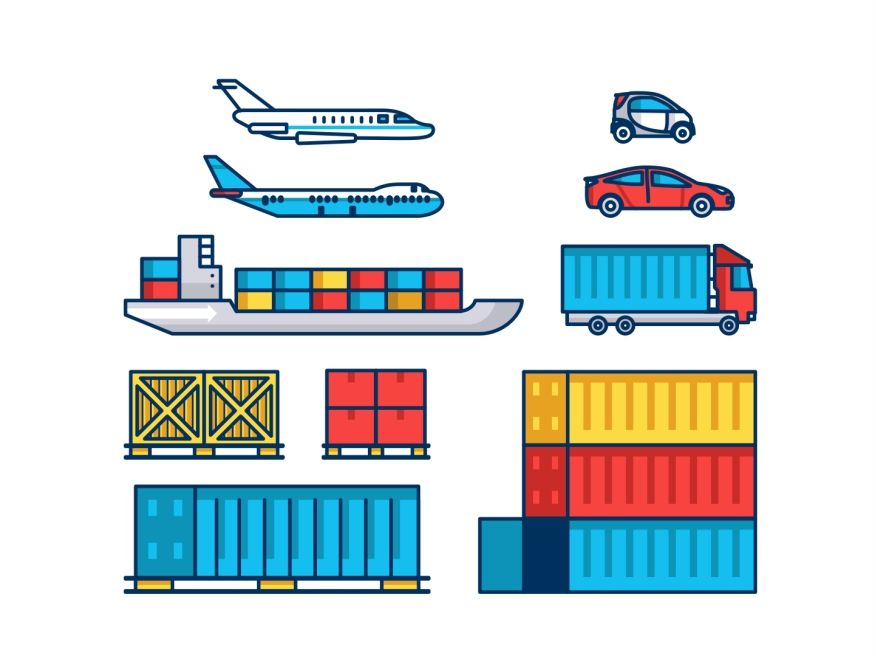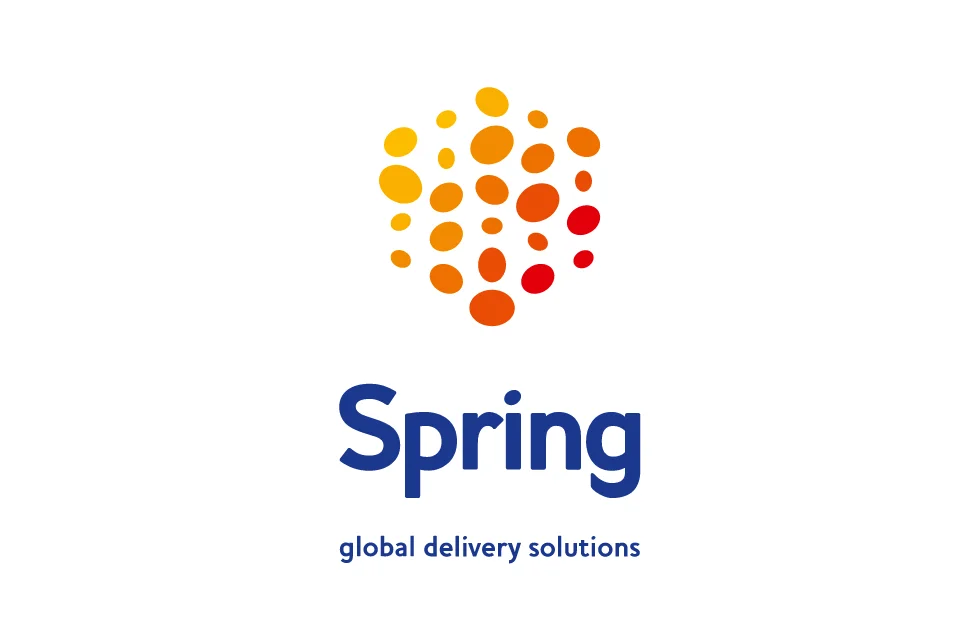If the most valued quality in B2C environments is geographical proximity (according to a survey by the Consumers Association of Navarra Irache), in B2B it is transparency. A buyer and a seller must know with absolute precision the terms and conditions in the delivery of commercial goods.
Although it may come as a surprise, determining where a good is delivered (commercial port, warehouse, etc.) or who is responsible for the costs associated with its transport was a common cause of conflict in the past, before the creation of the so-called Incoterms.
Incoterm is the contraction of International Commercial Terms, which we can correctly translate as International Terms of Commerce. Developed in 1936, the raison d’être of these rules or clauses is to universalize the responsibilities between sellers and buyers of goods, first defining the obligations agreed by one and the other and giving legal validity to the contract between the two parties – However, it should be noted here that Incoterms provide contractual liability mainly.
Thus, it seems clear that the knowledge and adequate application of Incoterms is not only the obligation of importers and exporters, but also a wide spectrum of professionals are influenced by these clauses: lawyers, warehousekeepers, entrepreneurs, etc. But what are Incoterms and what are their different types?
Incoterms, an ally of good understanding in ecommerce
A possible definition of Incoterms would be a list of international trade clauses that stipulate the responsibilities of sellers and buyers in the delivery of goods. It follows, firstly, that the scope of Intercoms begins and ends with the transportation and delivery of the cargo, not affecting any other part of the business cycle.
International sellers and buyers use Intercoms to specify who is responsible for transport, insurance or cost assumption, as well as where the cargo should be deposited (together or on the merchant vessel, for example). In this way, both parties feel more protected by the contractual nature of the Intercoms, avoiding misunderstandings and minimising commercial disputes and litigation that may arise as a result of poor communication.
But language differences are not the only risk factor in commercial contracts, as the negligence and dishonesty of one of the parties must be added to the equation. The knowledge of Incoterms is, therefore, of great importance to clearly define who is responsible in the event that the other party commits irregularities. EXW, CIP, FAS or FCA are examples of Intercoms that may appear in commercial contracts, and their implications affect both the seller and the contractor.
In total, Intercoms include 11 commercial clauses, the latest version of which is ‘Incoterms 2010’. It is important to emphasize that Intercoms are not laws, but standard contractual terms, which allow the parties to designate the costs, risks and obligations of transport. They do not apply, therefore, to a mandatory transaction, but both parties must decide to introduce them in the contract in order to clarify it as much as possible.
What are the types of Incoterms?
The structure and functions of Incoterms are composed of three vowels/consonants, representing the first letter of a clause (FCA is derived from free carrier, DDP from delivery duty paid, etc.). This selection of international trade clauses, which clarify the rights, risks and obligations of both parties with regard to the transport of goods, can be divided into two columns: maritime intercoms and intercoms for other means of transport (airplane, truck, etc.).
The latter deserve special attention, as they are very common in most commercial contracts.
- EXW: this international trade clause (whose acronym comes from Ex Works) implies that the seller must make the delivery of the products in the warehouse, shop or other space determined by the buyer, the latter being responsible for the costs. Some manufacturers of consumer goods (Coca-Cola, Lay’s, etc.) would practice this type of shipments with food retailers.
- CIP and CPT: these Intercoms (whose abbreviations are derived from Carriage and Insurance Paid and Carriage Paid To respectively) indicate that it is the selling company that is responsible for contracting the transport for the goods.
- FCA: in this clause, which stands for Free Carrier, it is the buyer who selects the carrier for the shipment of goods, which are delivered to the same by the seller.
- FOT: Free on Truck:
Free on lorry (FOT: Free on truck) or free on rail (FOR: free on rail): in landlocked countries the sale is often FOT or FOR and the buyers themselves organise transport to the nearest ocean port and the continuation of transport by sea. International shippers, usually connected to shipping lines, often offer a one-stop service, taking over the goods in Kampala (Uganda) and delivering them to Hamburg, Germany, for example, using a single document called a ‘combined bill of lading’ for land and sea transport*. The exporter provides the documentation for customs clearance.
- DAP, DAT and DDP: these Intercoms are derived from Delivered at Place, Delivered At Terminal and Delivery Duty Paid, respectively. They are the most onerous clauses for the selling company, which has the obligation to assume not only the costs related to the transport of the goods but also the risks.
What about maritime Incoterms?
Continuing with the different types of Incoterms, interested parties should know that goods transported by river water have their own ‘small print’ in commercial contracts, due to the nature and implications of this activity. Let’s look at them one by one:
- FAS: the acronym for free alongside ship means that the seller simply deposits the goods next to the ship, while the costs and all the rest are the responsibility of the buyer.
- FOB: this Intercom (free on board in English) presumes to be one of the most used and means that the transport of goods are the responsibility of the seller and that the delivery of them is made on board the ship owned by the buyer, with the convenient transfer of risks and responsibilities.
It should be noted that the FOB and FAS clauses do not involve the transport of the goods, but differ in the degree of involvement of the introduction of the products into the vessel. In the second, recommended for bulk goods, the seller deposits them in the port next to the ship, while in the second the cargo is introduced into the ship, thus terminating the commercial relationship.
- CIF: cost, insurance and freight means the seller agrees to pay insurance and to charter the ship to deposit the goods in the port indicated. Unlike the previous Intercom, in this one the transport of the goods takes place.
- CFR: also known as CNF (cost and freight), this clause indicates that the seller bears the costs related to the transport of the goods, in addition to depositing them in the port of destination indicated in the contract. On the other hand, it is the buying party that must assume the risks at the moment the goods are loaded on board the ship.
The importance of these Incoterms is not small, since the volume of goods transported by sea annually moves about 1.4 tons per inhabitant of the planet, according to the report Shipping Review and Outlook Clarkson. In Spain, this is the main commercial route at international level, representing almost 74% of the goods transported, as revealed by Eurostat in 2016.
What is the story behind Incoterms?
Having clarified what Incoterms are, it is worth going deeper into their origins and their recent history. They were created by the International Chamber of Commerce (ICC) in 1936, and unlike other mercantile clauses, Incoterms have received numerous modifications, the most recent being that of 2010, as mentioned above.
When integrating these clauses into commercial contracts, both parties must specify whether the Incoterms used correspond to those of 2010, 2000, 1990, etc. Of all the existing types of Incoterms, the oldest was the pioneer FOT (Free on Truck), although its antiquity cannot compete with its more distant ‘ancestor’, the FOB (Free on Board) promoted by the British Courts in 1812. This shows that the idea of commercial clauses for universal use was not an invention of the twentieth century, as it began its journey in the nineteenth century with the FOB.
Due to the periodic updating of the Intercoms, the successive reissues of these clauses have extended and perfected the list of Intercoms in 1953, 1967 and 1976, and from this date it was decided that their updating would coincide with the first year of the decade: 1980, 1990, 2000 and 2010.
With each new edition, the International Chamber of Commerce has not limited itself to perfecting existing Incoterms, but has implemented new clauses that respond to the changing needs of different commercial actors. In 1980, for example, the Intercom FCA (Free Carrier) was implemented due to the boom in the transport of goods in containers. This modality generated confusion between the buying and selling parties, since the Intercoms planned for it incurred in inaccuracies at the point of delivery.
In addition to introducing new Intercoms, the International Chamber of Commerce has also endeavored to improve the existing ones. The FCA received two major updates, in 2000 and 1990, with a significant simplification of the terms of this clause, which began to differentiate between the means of transport used and the designated place of delivery.
In view of the above, the importance of these international clauses is beyond doubt. Due to the optionality of their use, Intercoms were not an immediate success, being adopted initially by traders from some thirteen nations. Today, almost 150 countries make use of these clauses, which are present in all international markets.
What will happen to Incoterms 2020, the next generation of international clauses?
Due to the periodicity of Intercoms, it is not surprising that many wonder what will happen to these clauses in 2020, when the next update takes place. There is no single answer, but there are multiple rumours.
There is speculation, for example, about the possible disappearance of the FAS, DDP and EXW Intercoms, as they have come into conflict with the new EU customs code and are likely to generate confusion between the signatory parties.
Other clauses, far from being eliminated in Incoterms 2020, could receive an extension with a split of their terms and conditions. Such is the case of DDP (Delivered Duty Paid), which could give rise to DTP (Delivered at Terminal Paid) and DPP (Delivered at Place Paid), in search of greater clarity in the conditions of this type of mercantile deliveries.
Likewise, Incoterms 2020 would welcome new clauses such as the CNI (Cost and Insurance), which would occupy an intermediate place between the FCA and the CFR/CIF, as it is a combination of both: the seller bears the costs of the insurance and does not include the freight of means of transport. Also, this Intercom specifies that the responsibilities and risks of transporting the goods are transferred to the buyer immediately after delivery in port.
The only sure thing is that the Incoterms 2020 will not leave anyone indifferent, since their implications will have direct consequences on buying and selling companies in the five continents.





